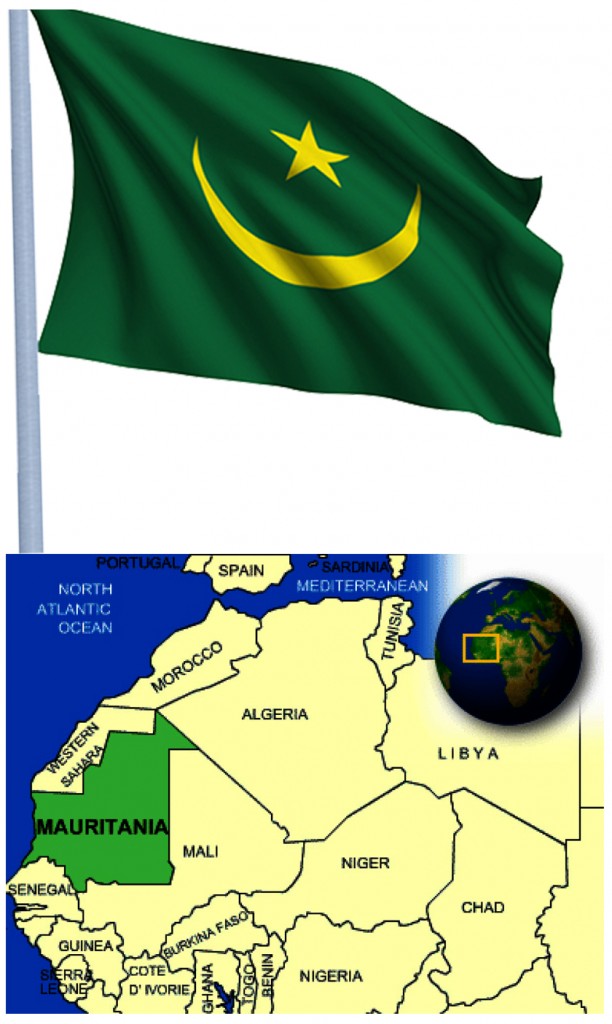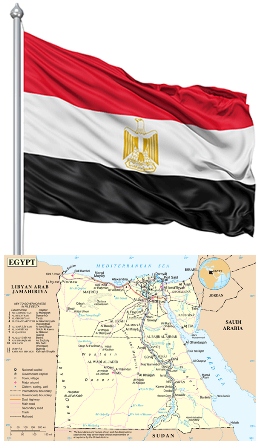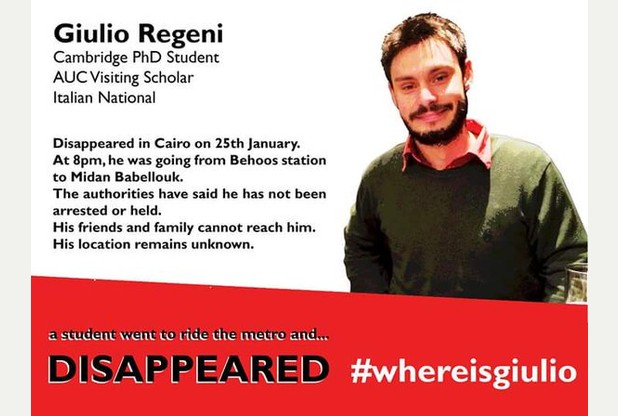-
WITH NEW UPDATE ON EGYPT:
-
Mauritania Sentences Blogger to Death as Egypt Grabs Reuters by the Horns After State-Sponsored Death Report.
New York, April, 2016, CPJ: An appeals court in Nouadhibou on April 21, 2016 upheld the death sentence for Mauritanian blogger and freelance journalist Mohamed Cheikh Ould Mohamed, who was convicted of apostasy in 2014 for an article he wrote, according to news reports.
[Apostasy refers to the conscious abandonment of Islam by a Muslim in word or deed, including the act of converting to another religion by a person who was born in a Muslim family or who had previously accepted Islam].
The appeals court referred the case to Mauritania’s Supreme Court, which has the power to repeal the sentence, reports said. Under article 306 in the Mauritanian penal code, if the Supreme Court rules that a defendant is repentant, it can reduce the sentence to up to two years in jail and up to 60,000 Mauritanian ouguiya (US$172.93.)
“We strongly condemn today’s verdict against Mohamed Cheikh Ould Mohamed, and call on Mauritania’s Supreme Court to repeal the sentence,” said Sherif Mansour, CPJ’s Middle East and North Africa program coordinator. “This mockery of a judicial process, which could end someone’s life for writing an article, should be consigned to the history books.”
 The appeal hearing on April 21 was held under tight security after the article Mohamed wrote led in January 2014 to nationwide demonstrations, in which protesters called for President Mohamed Ould Abdelaziz to punish Mohamed for what they saw as blasphemy, according to reports. The president told reporters in April 2014 that he did not believe Mohamed was aware of the seriousness of what he had written.
The appeal hearing on April 21 was held under tight security after the article Mohamed wrote led in January 2014 to nationwide demonstrations, in which protesters called for President Mohamed Ould Abdelaziz to punish Mohamed for what they saw as blasphemy, according to reports. The president told reporters in April 2014 that he did not believe Mohamed was aware of the seriousness of what he had written.
Mohamed’s article-published on December 31, 2013, on the news website Aqlame-criticized Mauritania’s caste system and said that followers of Islam interpreted the religion according to circumstance, Reuters reported. The editor of Aqlame, Riad Ould Ahmed, took down the article from the website and issued a statement on January 4, 2014, saying it had been posted accidentally.
During today’s court session, Mohamed admitted he had made a mistake and asked for forgiveness, according to news reports. On January 11, 2014, Mohamed issued astatement from prison denying that he intended to insult the Prophet Muhammad.
During the appeal hearing, the prosecution called for death by firing squad, according to reports. The defense demanded that the appeals court withdraw the blogger’s 2014 death sentence because it was based on his social class, and asked the court to take into consideration his repentance, according to news reports.
Egypt accuses Reuters of ‘spreading false news’, but where is Giulio Regeni?
Egypt has in the meantime picked a fight with the global news distribution agent, Reuters, accusing the reputable organization of spreading false information, accusations which the Committee to Protect Journalists has found faulty.
In a report to news outlets around the world, CPJ has asked Egyptian authorities to immediately drop criminal proceedings against Reuters and all journalists facing legal charges in connection with their work. The Committee to Protect Journalists made the call when Egypt’s Ministry of Interior filed a criminal complaint against the news agency and its Cairo bureau chief on April 22, 2016, accusing them of “spreading false news,” according to press reports.
 “Accusing Reuters of harming Egypt’s reputation simply for practicing journalism only compounds the harm to the country’s reputation done by widespread reports of police torture and arbitrary detention,” CPJ Middle East and North Africa Program Coordinator Sherif Mansour said from Washington. “Rather than desperately trying to silence the media, Egypt’s government should repeal the broad laws that make these prosecutions possible.”
“Accusing Reuters of harming Egypt’s reputation simply for practicing journalism only compounds the harm to the country’s reputation done by widespread reports of police torture and arbitrary detention,” CPJ Middle East and North Africa Program Coordinator Sherif Mansour said from Washington. “Rather than desperately trying to silence the media, Egypt’s government should repeal the broad laws that make these prosecutions possible.”
Officials from the Legal Affairs Department of the Ministry of Interior filed a criminal complaint with central Cairo’s Qasr al-Nil police station against Reuters and its Cairo bureau chief, Michael Georgy, accusing them of “spreading false news aimed at disturbing public order,” and “spreading rumors to harm Egypt’s reputation,” according to press reports citing security officials. If convicted Reuters’ journalists could face up to three years in prison.
The accusations are in connection with an April 21, 2016, Reuters report that cited three unidentified Interior Ministry officials and three unidentified intelligence officials as saying that Egyptian police detained 28-year-old Italian postgraduate student Giulio Regeni on January 25, 2016, the day he disappeared, according to press accounts. Regeni’s mutilated body was found on February 3 by the side of a road outside Cairo, according to press reports.
The Egyptian Interior Ministry did not answer repeated phone calls from CPJ seeking comment. A Reuters spokesman on Friday told CPJ the company could not yet comment on the case.
Interior Ministry officials have repeatedly denied that police detained Regeni or had anything to do with his killing, including in remarks Reuters published in its storyThursday. In a separate statement released Thursday, the ministry denied there was any truth to the Reuters story, and said it reserved the right to take legal measures against those who “promote such rumors and false news,” according to press reports.
Egypt’s Interior Ministry on March 25 told journalists that police had killed in a shootout four men they suspected of being responsible for Regeni’s murder. The ministry produced the student’s identification documents and personal belongings as evidence, saying police had discovered them in possession of the men they had killed.
Italy on April 8 recalled its ambassador to Egypt for consultation, out of frustration with Egypt’s handling of the investigation into Regeni’s murder, according to press accounts.
Egyptian journalists and human rights groups have for decades campaigned to amend article 102(bis) of Egypt’s penal code, which allows for the detention of “whoever deliberately diffuses news, information/data, or false or tendentious rumors, or propagates exciting publicity, if this is liable to disturb public security, spread horror among the people, or cause harm or damage to the public interest.” Article 18 of the Penal Code defines “detention” as up to three years in prison.
Egyptian authorities have increased pressure on the press in recent years. On December 1, 2015, when CPJ last conducted its annual census of journalists imprisoned around the world, only China jailed more journalists than Egypt.
NEW UPDATE ON EGYPT: CPJ concerned by reports of Egyptian accusations against Reuters
New York, April 22, 2016 – The Committee to Protect Journalists is concerned by reports in the Egyptian media that authorities have accused Reuters of “spreading false news” in a report on the death of an Italian student. The press reports could not be verified and Reuters said it had not received notification of legal action.
Press reports citing security officials said that the Legal Affairs Department of the Ministry of Interior filed a criminal complaint with central Cairo’s Qasr al-Nil police station against Reuters and its Cairo bureau chief, Michael Georgy, accusing them of “spreading false news aimed at disturbing public order,” and “spreading rumors to harm Egypt’s reputation.” CPJ was unable to verify the reports. The Egyptian Interior Ministry did not answer repeated phone calls from CPJ seeking comment.
A Reuters spokesman told CPJ today that the news agency cannot verify whether a complaint had been filed. “We have not received notice of any legal action,” the spokesman said.
The alleged accusations reported in local media are in connection with an April 21, 2016 Reuters report that cited three unidentified Interior Ministry officials and three unidentified intelligence officials as saying that Egyptian police detained 28-year-old Italian postgraduate student Giulio Regeni on January 25, 2016, the day he disappeared. Regeni’s mutilated body was found by the side of a road outside Cairo onFebruary 3, according to news reports.
Interior Ministry officials have repeatedly denied that police detained Regeni or had anything to do with his killing, including in remarks Reuters published in its story Thursday. In a separate statement released Thursday, the ministry denied there was any truth to the Reuters story, and said it reserved the right to take legal measures against those who “promote such rumors and false news,” according to press reports.
“These reports and threats are disturbing and come against a backdrop of increasing intolerance of independent journalism,” CPJ Middle East and North Africa Program Coordinator Sherif Mansour said from Washington. “The Egyptian authorities should repeal broad laws that make criminal prosecutions for spreading so-called false news possible.”
Egypt’s Interior Ministry on March 25 told journalists that police had killed in a shootout four men they suspected of being responsible for Regeni’s murder. The ministry produced the student’s identification documents and personal belongings as evidence, saying police had discovered them in possession of the men they had killed.
I taly on April 8 recalled its ambassador to Egypt for consultation, out of frustration with Egypt’s handling of the investigation into Regeni’s murder, aording tcco press accounts.
Egyptian journalists and human rights groups have for decades campaigned to amend article 102 (bis) of Egypt’s penal code, which allows for the detention of “whoever deliberately diffuses news, information/data, or false or tendentious rumors, or propagates exciting publicity, if this is liable to disturb public security, spread horror among the people, or cause harm or damage to the public interest.” Article 18 of the penal code defines “detention” as up to three years in prison. Egyptian authorities have increased pressure on the press in recent years. On December 1, 2015, when CPJ last conducted its annual census of journalists imprisoned around the world, only China jailed more journalists than Egypt.
[ EDITOR’S NOTE: This alert has been updated to include a comment from a Reuters spokesman and to clarify that the reporting is based on Egyptian media reports, which CPJ has not been able to independently verify.] CPJ is an independent, nonprofit organization that works to safeguard press freedom worldwide.





